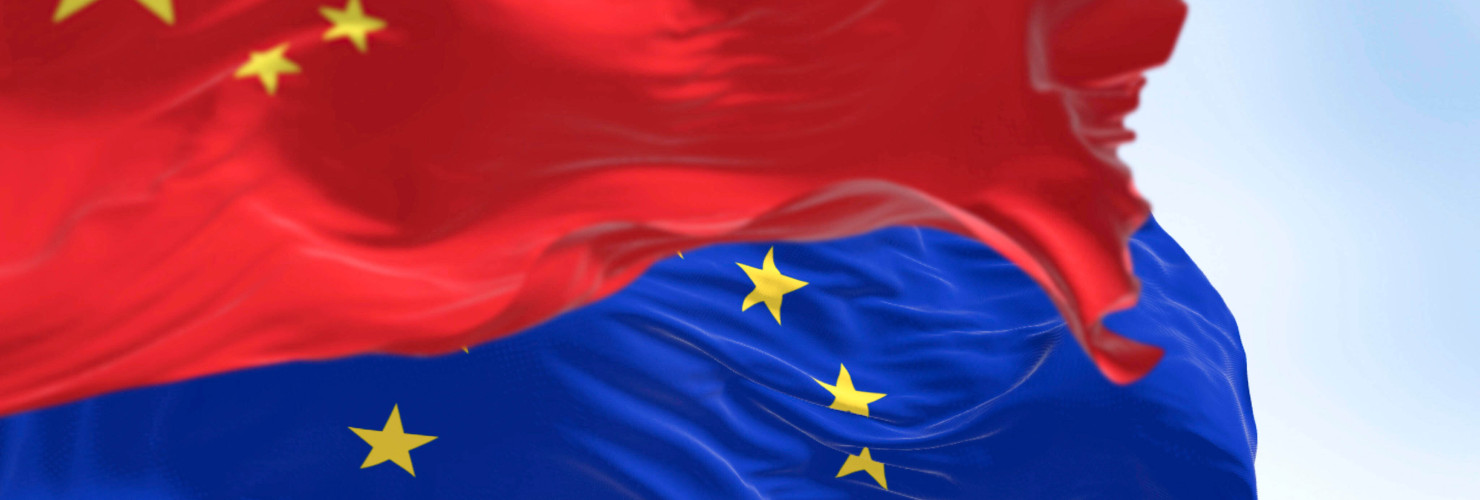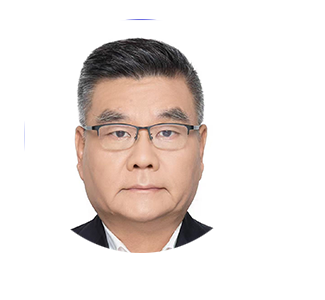

MERICS Forum: Engaging in times of tension - Views from Europe and China
While expectations are low that the EU-China summit will bring any major tangible outcomes, it will still play a significant role in shaping EU-China engagement in the current difficult geopolitical situation. The summit comes amid two contrasting dynamics.
On one hand, there are those in Europe who still hope for cooperation with China to help stabilize the EU’s economic and political outlook in the world, a desire that may be further fueled by US President Donald Trump’s recent threats of imposing 30 percent tariffs on the EU. On the other, the economic and strategic tensions between the EU and China have enflamed in recent weeks. Initial amicable rhetoric from both sides in early 2025 eventually gave way to heightened frictions as Beijing restricted rare earths licensing and put retaliatory pressure on EU medical devices. This came in reaction to the EU’s deployment of its new International Procurement Instrument and Beijing’s attempts to have the EU reverse its tariffs on China-made EVs.
In this edition of MERICS Forum, Grzegorz Stec, Head of MERICS’ Brussels Office and Senior Analyst, asked several experts:
Given ongoing tensions on both the strategic and the economic fronts, how could a constructive EU-China agenda look today, and what compromises would each side need to make in order to advance it?
Arancha Gonzalez
Dean of Paris School of International Affairs at Sciences Po

Fifty years ago, the EU and China established diplomatic relations. Europe was smaller and primarily focused on economic matters. China was poorer with an economy half the size France’s and just beginning to reform and open up. And the United States and the Soviet Union were engulfed in a cold war of geopolitical and ideological rivalry.
Fifty years later, bilateral trade and investment have boomed. China has turned into a technological and innovation powerhouse. Asia has become the engine of global trade. And a new cold war pits the US and China against each other. Today, trust between the EU and China runs low. Europe feels the economic playing field is becoming uneven and is concerned that China is supporting Russia in its war against Ukraine. China feels that for all the talk about strategic autonomy, the EU is just following the US playbook.
In this more conflictual world, there is a need to build a more functional relationship between the EU and China. Both should do this in their own interests. The starting point should be to acknowledge the differences between them, both economically and politically. The aim should be to manage the differences – starting with avoiding making them bigger. But ignoring each other or even veering into de-coupling will not work either. Trust can be built by setting a common agenda and walking the talk.
Such an agenda could be built around the following:
- A commitment to doubling down on the fight against climate change
- A pledge to keep markets open to each other, levelling the playing field, and avoiding weaponizing trade
- Investment flows with conditions to ensure they are beneficial to both sides
- Working together for a rules-based international order starting with the Paris Climate Agreement and the WTO
On the eve of the EU-China summit, both should remember that a strong Europe remains a ballast in a polarized world. And that China’s commitment to cooperation and dialogue, not confrontation, remains vital to global stability. Both are indispensable to a functioning multilateral order. The alternative is a world of conflict and chaos which is in no one’s interest.
Jin Ling (金玲)
Director of the Department of Global Governance and International Organizations, China Institute of International Studies

Seen from broader perspective, the current strategic and economic tensions between China and the EU are the result of the global power shift and the transformation of the global order, characterized by the rising tensions of geopolitical rivals, worldwide protectionism and competition on new economic fronts, which to a large extent weakens the strategic trust between China and the EU.
At the same time, it is also increasingly evident that, in order to handle the global challenges, it is necessary to see the common responsibilities and interests of the EU and China to promote a smooth and orderly transformation based on the UN-centered multilateral mechanism.
First, climate change should definitely be a priority of the joint agenda. The US withdrawal from the Paris climate deal leaves huge holes in global efforts to fight climate change. Both China and the EU should jointly take the leadership, not only for the global public good, but also for their mutual interests. A second priority is to jointly defend the multilateral trade system. US unilateral tariff wars are disrupting the world trade system which will have long-term, systemic impacts on the world economy. Neither China nor the EU could afford the cost of bowing to pressure and bullying. Last but not least, the Gaza humanitarian crisis, or the wider topic of how China and EU could join hands in promoting the Middle East peace process.
Starting from that, China and the EU must first and foremost reach a constructive strategic consensus by focusing on a positive agenda instead of finger-pointing and setting preconditions for pragmatic cooperation. To put it another way, there should be two parallel mindsets here: on one side, there should be pragmatic cooperation and advances in possible areas of cooperation, while on the other, there are channels to handle the tensions and disputes.
Alicia García Herrero
Senior Research Fellow at Bruegel

China’s actions severely undermine prospects for a constructive EU-China agenda. Its state-driven overcapacity in a growing number of sectors, most recently electric vehicles and solar panels, backed by opaque subsidies while lacking domestic demand for such products, cripples European competitiveness. Beijing’s refusal to grant reciprocal market access leaves EU firms disadvantaged and renders the relationship increasingly unbalanced. The EU’s de-risking strategy, diversifying critical raw material supply chains, is a necessary but insufficient response to China’s dominance in key sectors, including processed critical raw materials and, in particular, rare earths. Geopolitically, China has also weakened Europe by enabling Russia’s aggression against Ukraine by giving it access to dual-use exports and importing vast amounts of Russian gas and oil.
Despite the challenging relations, Europe should still seek selective cooperation with China when it comes to global commons, such as climate action but also pandemic prevention, etc. One specific area in which the EU’s push for cooperation would be enormously beneficial globally is carbon pricing. Aligning China’s carbon markets with Europe’s so that the price of carbon starts to converge should bring down emissions from China.
Additionally, WTO reform offers a platform to address digital trade and green transitions, requiring mutual commitment to a rules-based order. However, China must cease market distortions and geopolitical aggression, while the EU must unify its stance, balancing economic openness with security. Without these compromises, cooperation even in such targeted areas might not be as easy as it may look on paper.
Cui Hongjian (崔洪建)
Professor and Director at the Center for the European Union and Regional Development Studies, Beijing Foreign Studies University

Whether the upcoming China-EU summit or leaders' meeting can achieve results, the 50th anniversary should serve as an opportunity to readjust China-Europe relations. To ensure that this relationship continues to benefit both parties and the world, China and Europe need to propose a 4R agenda as follows:
First, both parties need to Reconfirm the value of this relationship and the importance of maintaining stability in the current situation for both parties and work together to avoid excessive turbulence, stagnation, or even regression.
Second, they should Reshape mutual perceptions and promote mutual understanding. The closeness of both parties in competitive strength does not necessarily lead to full competition, and the differences in systems and policies between the two do not imply confrontation.
Third, they should Rebalance the distribution of benefits for both parties in the changing economic landscape. The CAI may never wake up again, but entrepreneurs from both sides will always have more enthusiasm and creativity to find more reasonable and mutually beneficial ways to cooperate, as long as politicians restrain their impulse for excessive intervention.
Finally, they should Rebuild mutual trust and confidence in maintaining a cooperative relationship. Fifty years ago, the mutual acceptance between China and Europe accelerated the end of the Cold War and the arrival of the era of globalization. Although today's global situation may be more unpredictable than it was fifty years ago, and China-Europe relations are more complex than fifty years ago, both sides bear the same responsibility to keep humanity progressing.
Jakub Jakóbowski
Deputy Director of the Centre for Eastern Studies (OSW) and head of the China Department

Turning a blind eye to fundamental strategic divergences, repeating the familiar mantra of “climate, global issues, multilateralism”, will lead us nowhere. No matter how hard we try to preserve the last remnants of a cooperative era, underlying conflicts will spill over and undermine them. The only sensible path—the hard one—is to look for constructive engagement on the most contentious issues, namely Russia and the industrial conflict.
First, we need to build the relationship on honest terms, accepting that the “goldilocks” era of EU–China relations is over. Engagement no longer rests on shared values or economic complementarity, but on the need to prevent open conflict and stabilize the crumbling international system. With trust at historic lows on both sides, the focus must be on small, tangible steps that can manage friction and keep channels open.
How can these look like? The issue of Russia is a hard nut to crack, but a joint opposition to the use of nuclear weapons sets a good precedent. A framework agreement on limits and transparency of dual-use exports to Russia may be a next step. However, it must be carefully framed not as China bowing down to US pressure, but as gesture of good faith towards the EU. On the industrial clash, the pressure might be eased by funnelling China’s green tech and EV industrial expansion into collaborative joint-ventures on EU soil, facilitating know-how and technology transfers. While China will have to accept a taste of its own medicine, the EU would have to acknowledge China’s production relocation as part of the de-risking strategy.
Yan Shaohua (严少华)
Deputy Director and Associate Professor, Center for China-Europe Relations, Fudan University

Despite the tensions on multiple fronts ahead of the EU-China summit, there are still windows of opportunity for the two sides to reach “small and beautiful” deals, if a Trump-facilitated “grand deal” and rapprochement is not in sight. Reaching such deals will demand significant and politically sensitive compromises from both sides, requiring a delicate dance between safeguarding core interests and acknowledging the necessity of a functional relationship to tackle shared global challenges.
The EV tariff dispute could be a starting point and key priority for the two sides to reach a deal. Due to its economic and political significance to both sides as well as its implications for global green transition, how the EU and China manages the EV dispute will be very telling of where the relationship goes in the future. If a common goal of green transition and decarbonization could not bring the EU and China together to work on joint solutions, what else can?
With this spirit in mind and multiple options on the table, I see no reason not to reach a deal on EVs. Such a deal could be based on the concept of “sectoral protectionism” that protects the EU industrial base while still providing market access for China.
A pragmatic deal on EVs could also serve as a template for a more-nuanced, sector-by -sector negotiation between China and the EU. While the CAI remains stalled, both sides could pursue sector-specific agreements grounded in reciprocity and transparency.
The path to a more constructive EU-China relationship requires a significant departure from the current trajectory of escalating tensions and a mutual recognition that the costs of non-cooperation are simply too high. The compromises required are politically difficult for both sides, but they are essential for building a more stable, predictable, and ultimately more prosperous future for both the European Union and China.
Mikko Huotari
Executive Director of MERICS

Resilient engagement should guide Europe’s approach to China. This means reducing strategic dependencies, strengthening Europe’s economic and technological base, and engaging from a position of confidence and preparedness. Cooperation with China remains possible, but it needs to be conditioned and does not require deep trust. What it does require is clarity of interest, robust EU coordination, and mechanisms to verify and enforce commitments.
In today’s climate, damage control is already an achievement. Avoiding misunderstandings, maintaining open lines of communication, and managing tensions responsibly are not signs of weakness. They are essential tasks for anyone serious about strategic stability – and about preserving what remains a significant economic relationship. It’s a first step when Chinese and European leaders are at least having parallel internal conversations about problems that affect both – such as brutal price competition, overproduction and market distortions.
At the same time, Europe must stay engaged where coordination is necessary and possible. Regional security, pandemic preparedness, climate action, carbon pricing, and AI safety are areas where continued exchange with China serves both European and global interests. Results so far have been mixed, but the issues themselves are not going away. Seeking common ground should remain part of the playbook, even when the broader relationship is under strain. It is encouraging that limited steps have recently been taken on the Chinese side to reopen dialogue. These should be tested - and matched.

This MERICS Forum is part of the “Dealing with a Resurgent China” (DWARC) project, which has received funding from the European Union’s Horizon Europe research and innovation programme under grant agreement number 101061700.
Views and opinions expressed are however those of the author(s) only and do not necessarily reflect those of the European Union. Neither the European Union nor the granting authority can be held responsible for them.
